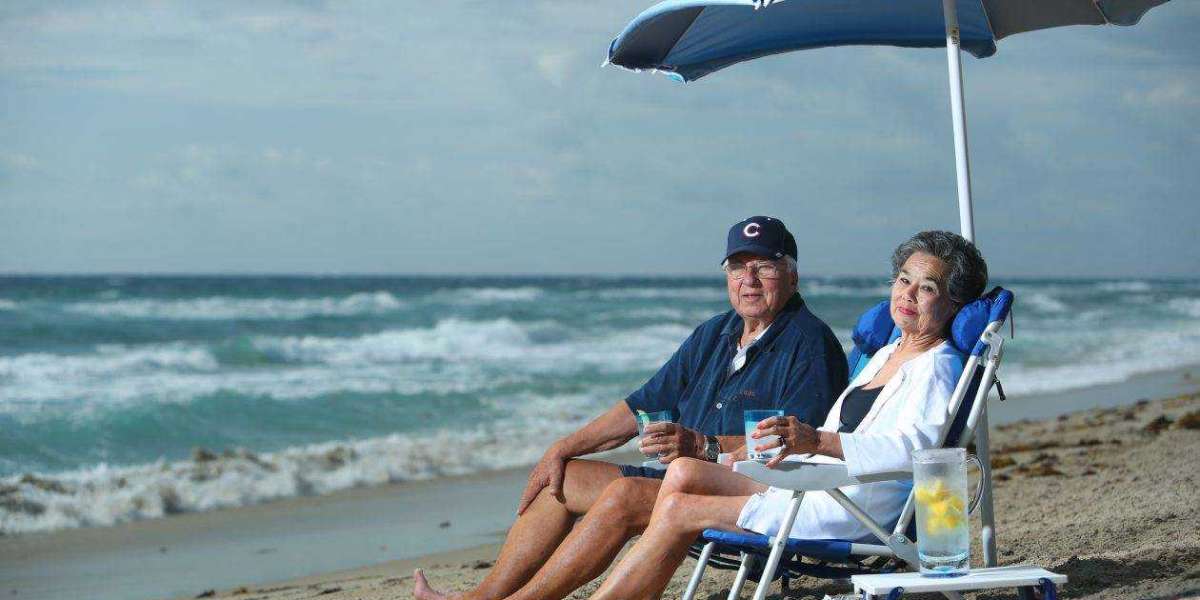Summer weather is frequently preferred by seniors since it provides more opportunities for leisure and outdoor activities. While obtaining adequate sunshine is beneficial, there are hazards associated with it, and caregivers for the elderly should be aware of the dangers of excessive sun exposure and heat stroke. Please read the following 10 guidelines to safeguard the health and safety of you or your senior loved one this summer.
1. Avoid becoming sunburned.
Sunshine is the finest natural source of vitamin D, and it may give a wide range of beneficial health effects for seniors, both physically and mentally, as well as a variety of other benefits. Sun exposure, on the other hand, might be harmful if taken in excess. Sunburns are a risk at any age, but as we get older, our skin loses its fat and water content, making it thinner and more vulnerable to sun exposure. This makes it simpler for ultraviolet (UV) rays to enter the skin and cause burns to occur. When spending time outside on sunny days, elders should always use a broad-spectrum sunscreen with an SPF of at least 30 or higher and reapply the same quantity every two hours.
2. Put on a Professional Appearance
A second crucial aspect of summer safety is wearing the correct attire. Make sure that the appropriate clothing is worn in order to protect the skin of an older person from the sun's damaging rays. Wide-brimmed hats that cover the face and neck, as well as sunglasses that provide protection from both UVA and UVB radiation, are also excellent choices. Wearing slacks and long-sleeve shirts may also be a good suggestion since they give some sun protection. However, it is crucial to ensure that your senior loved one does not overheat by layering on too many layers of clothing. Clothing should be light in color and loose-fitting in order to avoid chaffing.
3. Prevent Dehydration from Occurring
Among the variables that might contribute to dehydration in the elderly are excessive perspiration, a reduced intake of water from fruits and vegetables (which seniors sometimes avoid eating owing to difficulties chewing), and the use of certain drugs. Because of the hot weather, dehydration is an even greater threat, therefore it's critical that family members and caregivers are aware of the signs and symptoms. Stay away from sugary soft drinks and caffeinated liquids such as coffee and tea, since they will only serve to dehydrate you even further. Consider mixing an electrolyte drink mix into water to replenish the minerals lost via perspiration; however, diabetics should avoid electrolyte drink mixes that include added sugar.
4. Keep an eye out for overheating.
During heat waves, the elderly are at the greatest danger of developing hyperthermia, heatstroke, fainting, and maybe death. The efficacy of our bodies' sweat glands gradually diminishes as we grow older, making it easier to succumb to the effects of heat. Some of the symptoms of common heat disorders are as follows:
Dark urine; profuse sweating; nausea or vomiting; rapid heartbeat; dizziness; loss of consciousness/fainting are all possible symptoms (heat syncope).
To lower the risk of overheating, make sure to stay out of the sun when it’s at its peak strength, between 10 am and 4 pm.
5. Maintain Your Cool
If the weather is exceptionally hot, elders should seek refuge in an air-conditioned location and restrict their time spent outside. If you don't have air conditioning in your home, open windows on opposite sides of the house to produce a cool breeze. As a final precaution, it is recommended that you spend some time in air-conditioned facilities such as shopping malls, grocery shops, and libraries. Having a professional caretaker arrange for a fan or air conditioner to be installed in your elderly relative's house, as well as ensuring sure they drink enough water throughout the day, maybe quite beneficial.
6. Take a Dip in the Pool
The cities of Westmount, Côte Saint-Luc, Hampstead, and Mount Royal all have municipal pools, as do a number of other neighborhoods in Montreal. Swimming is a low-impact workout that is perfect for seniors, and it is also a terrific way to cool down in the summer. Waterproof sunscreen should be used at all times, and the elderly should never go swimming alone. A caregiver or family member should be there at all times to safeguard the safety of the child.
7. Prevent Bug Infestation
The presence of bugs and mosquitoes is unavoidable throughout the summer, but they are more than just an annoyance in the summer. According to the Government of Canada, mosquitoes are the most prevalent vectors of illnesses such as the West Nile Virus, which is disseminated throughout the months of July, August, and September. Seniors, of course, are more vulnerable to infection because of their reduced immune systems. Insect repellent should be worn when outdoors or near any wooded areas, especially around dawn and dusk, when mosquitoes are particularly active.
8. The Dangers of Outdoor Activities
Gardening, strolling, and golfing are among the activities that many seniors love. While all of these activities are excellent ways to keep active, they all require a significant amount of time spent in the sun. Make certain that seniors who participate in these activities receive additional attention, as being physically active increases the risk of dehydration as a result of excessive perspiration. When participating in any physical activity outside, seniors should consume enough of fluids to stay hydrated.
9. Seek the Protection of the Shade
Experiencing direct sunlight for a lengthy amount of time might be dangerous. When it is feasible, elders should seek out shade to escape the heat from time to time; for example, when visiting a public park, it is better to sit on a seat beneath a tree with dense foliage to avoid overheating.
Ten. Don't Go It Alone
To summarize, the most essential summer safety guideline for seniors is to avoid being alone in the heat. It is far more dangerous to be outside during the summer when there is no one to help you in case of an emergency, such as fainting or heat stroke.



